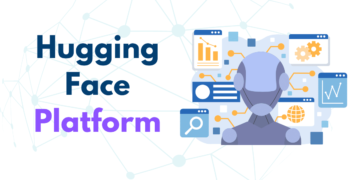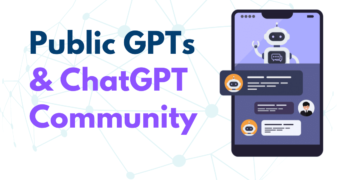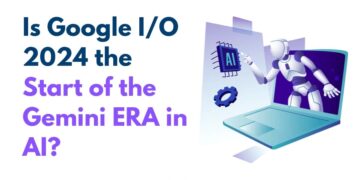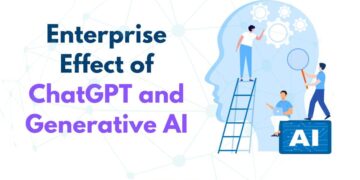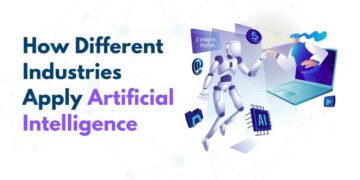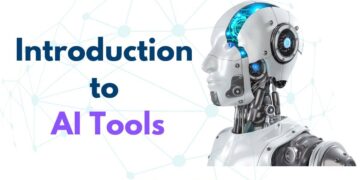
AI technology is increasingly being developed and widely applied in many fields. It can help people perform both simple and complex tasks, improve work efficiency and save time. This article will provide some potential applications of AI technology in modern life.
Introduction
Artificial intelligence (AI) is one of the fastest developing technologies in the modern technology world. This technology is widely applied in many fields such as healthcare, education, manufacturing, transportation, finance, and many others. In this article, let’s explore some potential applications of AI technology in modern life with AIoutils.com.
Applications of AI Technology in Healthcare

Patient Data Analysis
Artificial intelligence (AI) has been widely applied in the healthcare field, especially in the analysis of patient data. Thanks to the development of technology, AI can help healthcare researchers analyze patient data quickly and more accurately, thereby providing new discoveries about diseases and creating better diagnostic and treatment methods. Additionally, AI can also help enhance the management of patient data, allowing healthcare professionals to access data more quickly and efficiently. However, the application of AI in patient data analysis also requires accuracy and caution, especially regarding patient information security and privacy.
Assistance in Diagnosis and Treatment
With the advancement of technology, AI has the ability to analyze and process a large amount of medical data, helping to make accurate and quick decisions. Additionally, AI can also support the prediction and detection of diseases, making diagnosis and treatment more effective. With these benefits, the application of artificial intelligence in assisting in diagnosis and treatment is becoming a trend and is being applied by many healthcare professionals.
Automation of Healthcare Processes
The automation of healthcare processes is one of the applications of AI in healthcare. It helps reduce time and costs for healthcare processes while improving the quality of patient care.
Some applications of AI in the automation of healthcare processes include:
• Automating the diagnosis process: AI is used to process and analyze information from massive medical datasets, creating decision support and diagnostic systems that can help healthcare professionals make more accurate and faster diagnoses.
• Automating the treatment process: AI can help healthcare professionals choose the best treatment options for patients by analyzing their medical data, including medical history, medications, and other relevant factors.
• Automating administrative processes: AI can help healthcare facilities automate administrative processes such as scheduling appointments, billing, and managing patient records.
The Application of AI Technology in Education
Improving Teaching Methods
Artificial intelligence (AI) technology is being widely used in education to improve teaching and learning methods. Applications of AI in education are rapidly developing and diverse, from creating more diverse and interactive teaching content to providing personalized feedback and recommendations for learners.
Some applications of AI in improving teaching methods include:
• Creating interactive teaching content: AI can be used to create more diverse and interactive teaching content, which helps learners become more interested and better able to absorb knowledge.
• Analyzing learning data: AI can be used to analyze learners’ learning data, which helps teachers provide feedback and personalized recommendations for each learner to improve the effectiveness of learning.
• Automating assessment processes: AI can be used to automate the assessment process of learners, helping to save time and increase the accuracy of the assessment process.
Building Personalized Learning Support Systems
AI technology is being used to build personalized learning support systems. With the ability to analyze data and provide feedback, AI can help learners automate the learning process, helping them find information, suggest materials, and provide feedback based on their individual interests and learning goals. Thanks to the application of AI technology in building personalized learning support systems, learners can learn more optimally and effectively.
Adjusting Teaching Content to Needs
With artificial intelligence technology, teaching content can be adjusted to learners’ needs. With the ability to analyze data and provide feedback, AI can understand the level of knowledge and individual interests of each learner, and then suggest the most appropriate teaching content. Thanks to the application of AI in adjusting teaching content to needs, teachers can provide learners with the most suitable information and materials based on their interests and learning goals. This helps learners have a better learning experience and helps to improve the effectiveness of teaching.
Applications of AI technology in manufacturing

Enhanced production efficiency
Artificial Intelligence (AI) technology is being used to enhance production efficiency in many industries. With its ability to analyze data and make predictions, AI can help measure and improve the performance of manufacturing processes. It can assist manufacturers in optimizing production processes by reducing downtime and increasing production speed. Additionally, AI can also help detect quality-related issues early on, thereby reducing the number of defective products and increasing production flexibility. With the application of AI technology in enhancing production efficiency, businesses can save costs and improve the quality of their products.
Automated production error detection and repair
AI is being used to automatically detect production errors and repair them in many industries. With its ability to analyze data and make predictions, AI can accurately detect and evaluate errors in the manufacturing process. Then, AI can automatically provide feedback to quickly and effectively repair these errors. This helps businesses save time and costs for detecting and repairing errors, while improving the quality of the products. With the application of AI technology in automated production error detection and repair, businesses can improve efficiency and increase production flexibility.
Optimization of production processes
Artificial Intelligence plays an important role in optimizing production processes. It can help manufacturers improve production efficiency by optimizing processes and reducing downtime. AI can analyze data and make predictions to help businesses improve production efficiency. It can also help detect quality-related issues and provide solutions to enhance production efficiency. With the application of AI technology in optimizing production processes, businesses can save costs and improve the quality of their products.
Applications of AI technology in transportation

Intelligent highway management
AI plays an important role in intelligent highway management. Intelligent highway management systems are equipped with sensors and computer networks that allow for continuous data collection and analysis. AI systems can analyze information about traffic flow, road conditions, and other environmental impacts. Based on this data, AI systems can provide solutions to reduce accidents, enhance traffic safety, and reduce travel time for the public. In addition, AI technology can optimize the operation costs, improve efficiency and enhance user experience of the intelligent highway management system. With the application of AI technology in intelligent highway management, we can achieve the goal of reducing traffic accidents and enhancing safety for traffic participants.
Intelligent traffic coordination
AI is also applied in intelligent traffic coordination. Intelligent traffic coordination systems are equipped with sensors and cameras that allow for data collection about traffic conditions on the road. AI systems use data analysis algorithms to determine congestion levels and provide optimal solutions for traffic coordination. This helps reduce travel time, enhance traffic safety, and reduce harmful emissions from vehicles. AI technology also helps improve user experience, reducing stress and improving the quality of life in congested areas. With the application of AI technology in intelligent traffic coordination, we can achieve the goal of creating a safer, more efficient, and more sustainable traffic environment.
Self-driving cars
Artificial intelligence (AI) technology is the core technology in the development of self-driving cars. The self-driving car system is equipped with sensors and cameras to collect data and recognize traffic situations on the road. AI systems use machine learning algorithms to process information and make automatic decisions for the car. This helps to enhance traffic safety, reduce accidents, and improve the performance of the car.
AI technology also helps self-driving cars learn how to adapt to different traffic situations and optimize control. It can recognize traffic signs, moving objects, and find the optimal route. AI technology also improves the user experience by creating a safer, more convenient, and intelligent means of transportation. With the application of AI technology in self-driving cars, we can move towards a safer and more sustainable future of transportation.
Conclusion
Artificial intelligence is increasingly being applied in many areas of life, from healthcare, education, manufacturing, transportation, to many other industries. With the ability to learn and make automatic decisions, AI technology has the potential to significantly improve the quality of life and optimize the performance of systems. However, at the same time, there are also many ethical and responsibility challenges arising. We need to ensure that the application of AI technology ensures safety, transparency, ethics, and responsibility, in order to maximize benefits for society and protect the rights of stakeholders.

